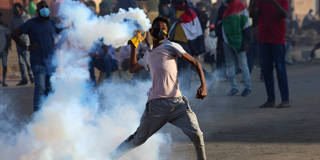Without Prigozhin’s personal relationships and access to Kremlin resources, the Wagner Group will most likely become a shadow of its former self. This provides African leaders and Western countries with a unique opportunity to forge stronger security ties and drive private militias out of the continent.
LONDON – The recent deaths of Wagner Group leader Yevgeny Prigozhin and several of his top lieutenants in an airplane crash north of Moscow will likely have far-reaching implications for Africa, where the private military company has established a significant presence in recent years. After all, if Russian President Vladimir Putin is responsible for Prigozhin’s death, as many suspect, African leaders who have tied their political fortunes to Wagner must wonder how credible Prigozhin’s promises to them now are.
The military ties between the Kremlin, Wagner, and African governments have always been shrouded in uncertainty. But the death of Prigozhin and Wagner co-founder Dmitry Utkin, presumably orchestrated by Putin as punishment for Prigozhin’s short-lived June rebellion, has increased the risks facing those African leaders who have relied on Wagner’s mercenary army to strengthen their hold on power.
Sudanese warlord Mohamed Hamdan Dagalo, commonly known as Hemedti, is a case in point. Hemedti, the commander of the Rapid Support Forces (RSF) paramilitary group, spent years cultivating a relationship with Prigozhin. But with Prigozhin dead and Wagner’s future uncertain, the supply of weapons to RSF will likely be disrupted, potentially shifting the balance of power between the RSF and the Sudanese Armed Forces. This shift comes at a precarious time for Hemedti, whose bid to lead the country seems to be faltering.

LONDON – The recent deaths of Wagner Group leader Yevgeny Prigozhin and several of his top lieutenants in an airplane crash north of Moscow will likely have far-reaching implications for Africa, where the private military company has established a significant presence in recent years. After all, if Russian President Vladimir Putin is responsible for Prigozhin’s death, as many suspect, African leaders who have tied their political fortunes to Wagner must wonder how credible Prigozhin’s promises to them now are.
The military ties between the Kremlin, Wagner, and African governments have always been shrouded in uncertainty. But the death of Prigozhin and Wagner co-founder Dmitry Utkin, presumably orchestrated by Putin as punishment for Prigozhin’s short-lived June rebellion, has increased the risks facing those African leaders who have relied on Wagner’s mercenary army to strengthen their hold on power.
Sudanese warlord Mohamed Hamdan Dagalo, commonly known as Hemedti, is a case in point. Hemedti, the commander of the Rapid Support Forces (RSF) paramilitary group, spent years cultivating a relationship with Prigozhin. But with Prigozhin dead and Wagner’s future uncertain, the supply of weapons to RSF will likely be disrupted, potentially shifting the balance of power between the RSF and the Sudanese Armed Forces. This shift comes at a precarious time for Hemedti, whose bid to lead the country seems to be faltering.